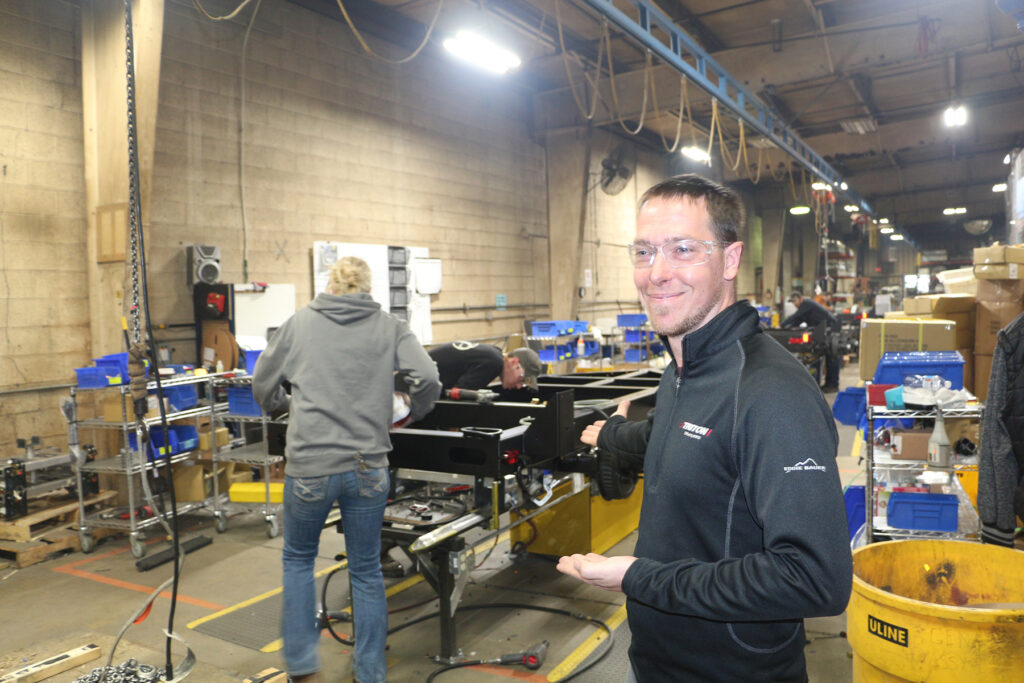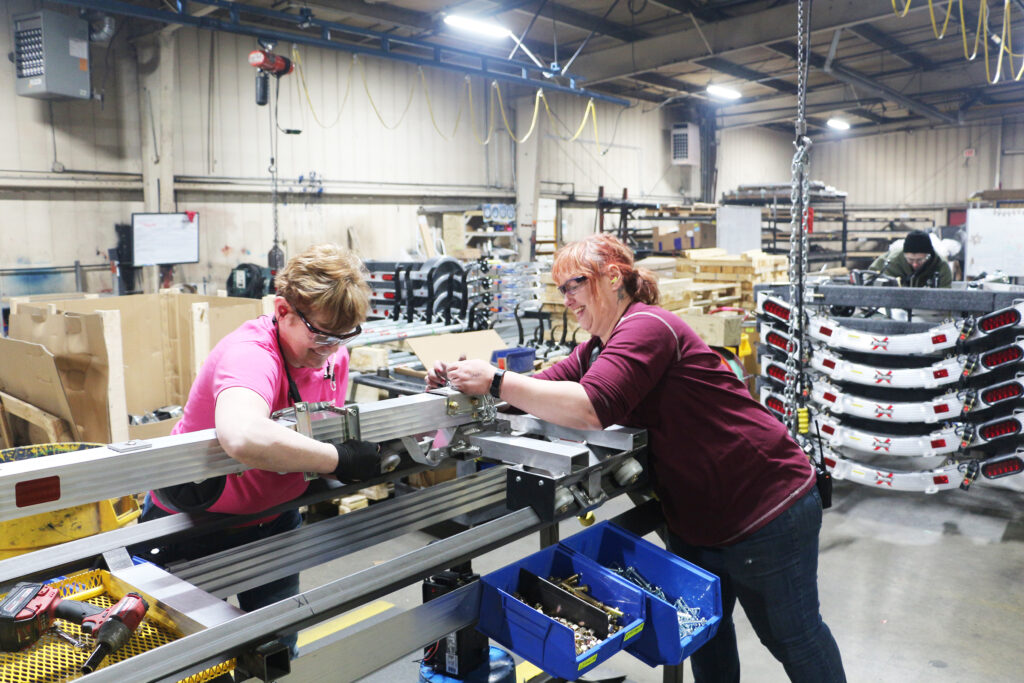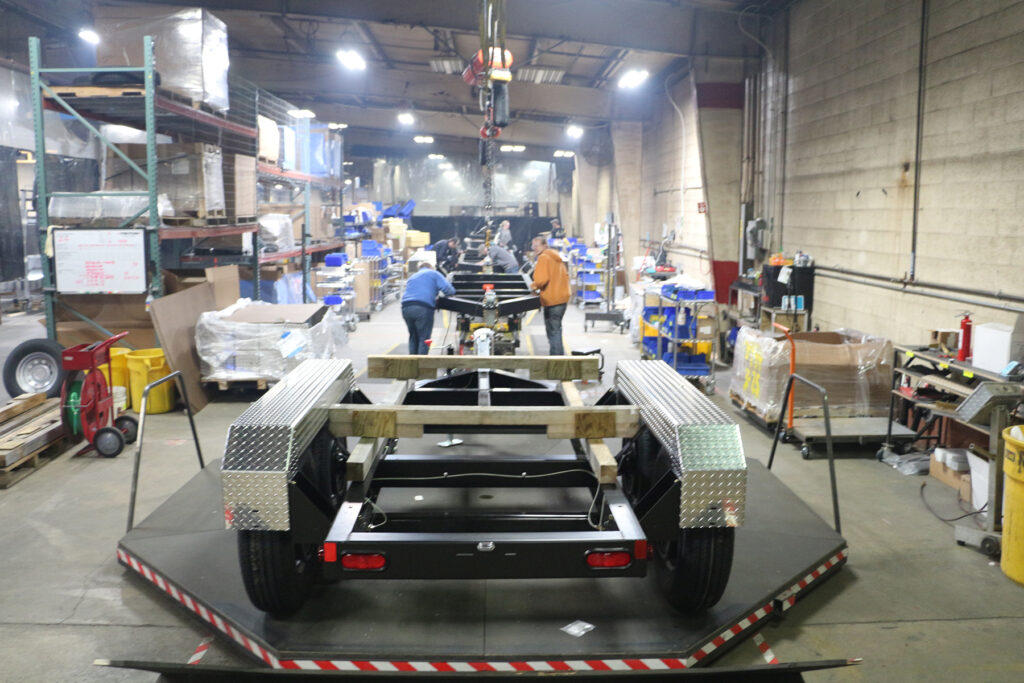
COMPANY PROFILE:

Founded in 1975 by John Reiser and Bob Peisch as a manufacturer of boatlifts, Triton Trailers expanded into making canopies, farm gates, wood-burning furnaces and miscellaneous job shop work before shifting its focus to high-quality aluminum and steel trailers used to transport pull-behind power generators, personal watercraft and snowmobiles. Triton Trailers operates a 165,000 square-foot factory, its lone facility, with 150 employees in the city of Hartford in Washington County. Jacsten Holdings, a Milwaukee-based private investment firm, purchased Triton Trailers in 2013.
SITUATION:
A dramatic boom in sales caused Triton Trailers’ manufacturing efficiency to plummet. Additional manufacturing operations needed to handle the increased demand were shoehorned into several parts of its factory with little consistency between various production lines. The company’s sales for the commercial side of its business doubled over the course of a year but its labor efficiency, which historically had been 90 to 100 percent, dipped into the 40 to 50 percent range.
SOLUTIONS:
Triton Trailers attempted to improve its production efficiency but struggled with the process. The company then had its continuous improvement manager enroll in a WMEP Manufacturing Solution’s Lean Six Sigma Green Belt training and certification public offering, which provides proven methods to minimize waste and reduce costs. The training included eight sessions of in-class training by Certified Master Black Belt and Black Belt trainers and exposed Triton Trailers to an array of tools available through Lean Six Sigma. In addition to classroom training, a WMEP consultant also visited the Triton Trailers plant to view changes to the plant.

RESULTS:
- Introduced a rail system in manufacturing lines built using custom trolleys and carts to improve the production process and safety.
- Improved efficiency in both the generator trailer and watercraft trailer lines led to the elimination of overtime and made it unnecessary to replace the 10 to 15 factory employees who left the company through normal turnover during the period.
- Boosted production to meet increasing demand and took on an additional $5 million in annual sales without adding a second shift or expanding its plant.
- Tripled throughput over the course of two years with no additional facility or labor investment.
“The main reason we decided to go with WMEP is, first and foremost, its value. The WMEP also has a stronger hands-on network. The consultant we worked with had years and years of experience using the tools in the industry. With other providers, you might only get a textbook approach. That really made the difference.”
Tony Schellinger, Continuous Improvement Manager – Triton Trailers LLC